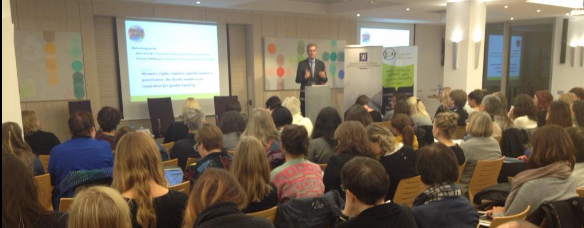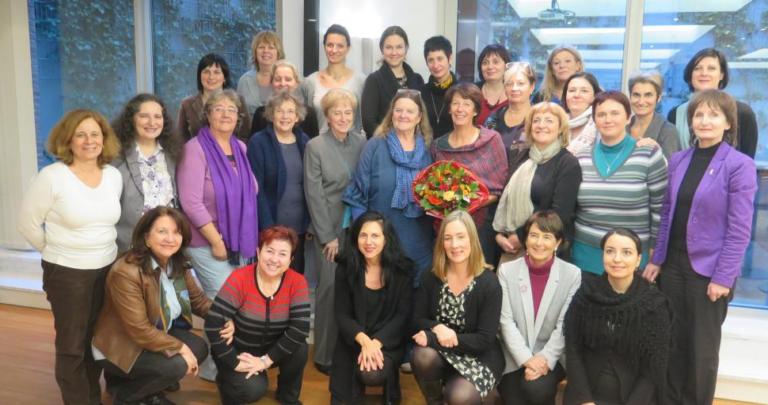When Spain took over the rotating Presidency of the European Union (EU) on 1 January 2010, expectations were high for progress in terms of European action for women’s rights. The government of José-Luis Zapatero put gender equality high on the national agenda, and its promise to do likewise in Brussels was warmly welcomed by the European Women’s Lobby (EWL) and its thousands of member organisations from across Europe.
The Spanish Presidency chose to tackle the promotion of gender equality in the EU most visibly by focusing strongly on the issue of male violence against women. Some 45% of women suffer from such violence in Europe, and one in five falls victim to domestic abuse. More than one in ten women is a victim of sexual violence involving the use of force. This widespread and intolerable violation of women’s basic human rights has never been the subject of EU legislation, and has never been high on the EU policy agenda.
In March, the Presidency sponsored and delivered Council Conclusions representing a historic political commitment from the 27 governments of the EU member states to tackle male violence against women with a comprehensive strategy. In parallel, concrete proposals were put forward for the prevention of such violence, including setting up a European helpline. Following upon a second set of Conclusions agreed by all the EU countries in April, the European Agency for Fundamental Rights has launched a survey to establish the extent of such violence against women across Europe, and plans are underway to set up a European Observatory on male violence against women under the aegis of the newly opened European Institute for Gender Equality. These information gathering exercises and structures are crucial, as comparable data on all forms of male violence against women from the EU member states is critically lacking.
To protect victims, the Spanish Presidency also put forward a legislative proposal for a European Protection Order (EPO), which on 4 June gained a first approval from the other member states. Guaranteeing mutual recognition of national protection orders, the EPO will allow victims to exercise their right to free movement across internal EU borders. Although the proposal does not set minimum standards or address the widely varying levels of protection European countries accord to women victims of violence, the EPO will be a welcome first step towards more comprehensive legislation to tackle male violence against women.
The fervour that the Spanish Presidency brought to combating male violence against women was remarkable. Now, political commitments need to be transformed into concrete actions. The priority of gender equality is shared by Spain’s Belgian and Hungarian colleagues in the framework of their Trio Presidency, and the magnitude of their responsibility cannot be underestimated. For thousands of women across Europe, the ability of the EU to deliver on this is not a luxury, but a matter of life or death. It is time for the EU to treat human rights with the seriousness and urgency they deserve, and demand.


